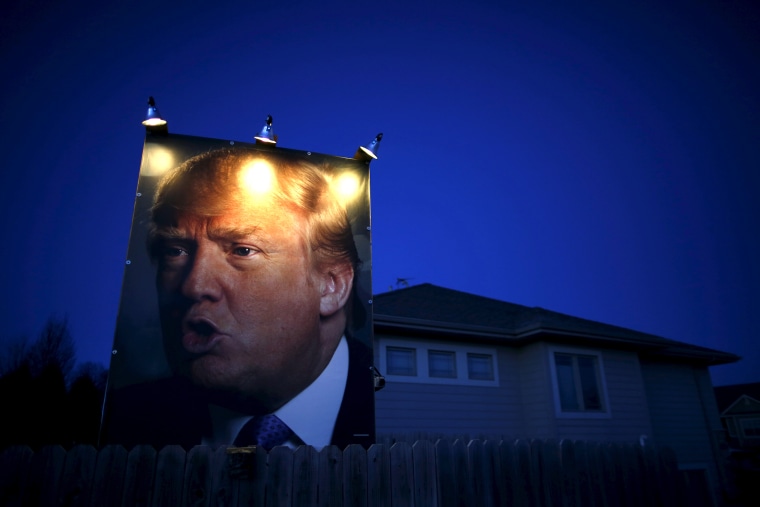When President Obama first took office, his White House created an online feature called "We the People," in which regular Americans are able to submit ideas and questions that the public can then vote on. If enough people endorse a submitted petition, the administration follows up in an official capacity.
As it turns out, the British parliament has created a similar tool, allowing citizens of the United Kingdom to offer their own proposals. If an online petition generates more than 100,000 signatures, a designated committee considers it for debate. The most successful petition ever -- garnering over 570,000 online signatures -- would ban American presidential hopeful Donald Trump from entering the U.K.
At another point, an MP described Trump as a "wazzock," though I'll confess, I haven't the foggiest idea what that means. In context, I'm reasonably confident it wasn't a compliment.
As for the resolution of the debate, it appears cooler heads prevailed. The Washington Post's Dana Milbank explained, "While there was universal consensus that the billionaire developer is appalling, there was little interest in banning him from entering Britain -- if only because that would make him a martyr."
It's a fair point. In fact, I suspect the debate itself will be a point of great pride for Trump, coming soon to a stump speech near you.
While a committee of the British Parliament was considering the candidate's extremism, Trump himself was in Lynchburg, Virginia, speaking to students at Liberty University, a Christian school created by the late radical televangelist, Jerry Falwell. MSNBC's Ali Vitali reported:
Trump sought to show his religious knowledge and his support of the Christian faith. He told the crowd that a Trump administration would seek to "protect Christianity" and bring back "Merry Christmas." But he bungled an attempt at a deeper show of knowledge, saying that he asked Falwell and "some of the folks here because I hear this is a major theme right here. But two Corinthians, right? Two Corinthians 3:17. That's the whole ballgame." The conventional way of citing scripture would be "second Corinthians." Trump even used the word "damn" when describing Apple needing to build their "damn computers and things" in America -- a line he's used at many rallies before, but never at an evangelical place of education.
Keep in mind, if there's one thing Trump has demonstrated over and over again, it's that he knows practically nothing about religion.
Nevertheless, by all accounts, the Republican candidate received a warm welcome from the evangelical audience.
The political importance of Liberty U., meanwhile, continues to grow.
